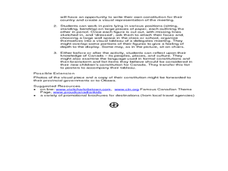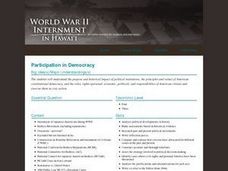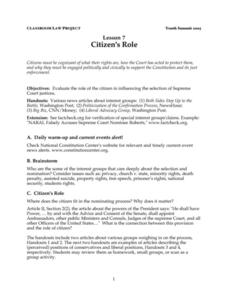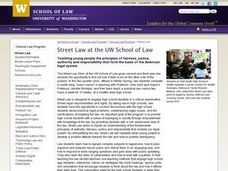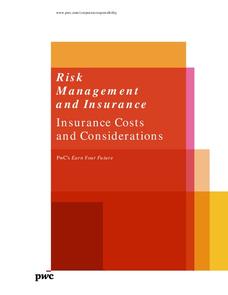Curated OER
Rosa Parks
Students examine the actions of Rosa Parks. They identify the reasons why philanthropy is good for the community and individuals. They write a letter to someone they admire because of their qualities.
Curated OER
Traveling on the Orphan Train
Young scholars explore the components and meaning of philanthropy. In this community awareness lesson, students are able to identify and research agencies and organizations that provide services to children in need, compare and contrast...
Curated OER
The Duties of Governments: Dix vs. Pierce
Students examine the role of Dorothea Dix on behalf of people with disabilities. They discuss President Pierce's veto of legislation she helped create. They address the rights and responsibilities of citizen's and the role of government.
Curated OER
Where Canada Began
Third graders discuss the term "Birthplace of Confederation" in context to the beginnings of Canada. In groups, they create a list of the rights and responsibilities of citizens and identify examples of those who made contributions to...
Curated OER
A Gesture Is Worth a Thousand Words
Students share observations on the nuances of meaning in face to face and online interactions with others. After reading an article, they identify the causes and effects of internet flaming. They create their own comic strips...
Pennsylvania Department of Education
Home School Connection
Students explore responsibility by participating in a jobs activity. In this housekeeping lesson, students identify the work and preparation that needs to be done at their home if they are going to learn in a home schooling environment....
National Endowment for the Humanities
Revolution '67, Lesson 1: Protest: Why and How
To some people, protesting is as American as apple pie, but the factors that lead to protests can be as confusing to veteran activists as to today's youth. Revolution '67 explores the riots in Newark, New Jersey as a case study. Using...
National Endowment for the Humanities
Revolution '67, Lesson 2: What Happened in July 1967? How Do We Know?
Even in a world in which dozens of participants and curious onlookers record every controversial event, the basic facts of what happened are often in dispute. Revolution '67, Lesson 2 explores 1967 Newark, New Jersey using an examination...
Curated OER
Participating in Democracy
Young scholars analyze film clips in class. For this democracy lesson, students identify the differences between civil liberties, democracy and freedom. Young scholars view a video regarding Japanese internment and answer study questions...
Curated OER
Cartoons: How Have Society's Views of Women Changed Over Time?
Students explore women's rights by viewing cartoon images. In this women's history instructional activity, students view several images depicting women in a certain way while discussing the meaning of the imagery among their classmates....
Curated OER
Citizen's Role
High schoolers discuss the role of citizens in the United States. In groups, they evaluate how the role of citizens is important when selecting Supreme Court Justices. They read articles about internest groups and complete worksheets to...
Curated OER
Adult Roles and Responsibilities
Students explore goods and services. For this money management lesson, students pick a $100.00 item they would like to buy and they use the internet to research that specific topic. With their research they answer questions on a given...
Curated OER
Comparisons, Redeeming Slavery, and Code words.
Students compare and contrast parallels between various aspects of slavery. In this anti-slavery lesson students examine types of slavery from the Holocaust to contemporary issues of slavery in the world today.
Curated OER
"The Election"
Learners participate in an election for the purpose of comprehending the political process and the responsibilities that come with citizenship in a free society. They elect officials with no identity and are surprised with the revealing...
Curated OER
Employment Law
Students begin their examination of Employment Law. In groups, they identify the types of protections in place for employees and examine situations in which their rights were violated. They act out various skits and discuss the new...
Curated OER
The Preamble to the U. S. Constitution
Fifth graders explain the purpose of the government by examining the Preamble to the Constitution. They identify ways in which the government is preserving those rights today. They discover one of the fundamental principles of...
Curated OER
Centennial: A Day In The Life Of Children - Then And Now
Fourth graders compare and contrast the rules and responsibilities of children from today and in the past. In groups, they compare and contrast their daily lives with a child in history. After taking a field trip, they discuss how...
Curated OER
A Woman's Crusade: Dorothea Dix
Students examine the life and reform efforts of Dorothea Dix on behalf of people with disabilities. They also examine the role of women in the 1840s and 1850s. They discover different sources of examples of citizen's rights.
Curated OER
America¿s Leader
Learners examine the roles and responsibilities of the President of the United States. Using their textbook, they discover when the presidency was formed, how it works and what kind of power the President has. They also discuss how the...
PricewaterhouseCoopers
Consumer Fraud
Falling into the hands of a credit scam is much too common these days, and the young adults in the classroom need to be prepared. Through the activity, learners discover how to be a safe spender and use common sense when presented with a...
PricewaterhouseCoopers
Saving and Investing: Building Wealth for Financially-Secure Futures
While spending is fun, saving for a retirement is the future. Young adults learn about the importance of saving and different opportunities to do so during their adulthood.
PricewaterhouseCoopers
Planning and Money Management: Financial Plan
More planning goes into a budget than a high schooler thinks. Here, they learn about the expected expenses and incomes, along with outside factors such as natural disasters. Learners prepare their own budget and adjust it based on the...
PricewaterhouseCoopers
The Stock Market
Keep or sell? Young learners simulate as buyers in the stock market while learning about the benefits and important factors to know when purchasing. The thorough resource allows for observation of case studies and provides an assessment...
PricewaterhouseCoopers
Risk Management and Insurance: Insurance Costs and Considerations
Compare the different types of insurance with high schoolers, and have them learn the benefits and costs of medical, auto, and home policies. The resource addresses what makes some insurances more costly and what teenagers can do to find...





